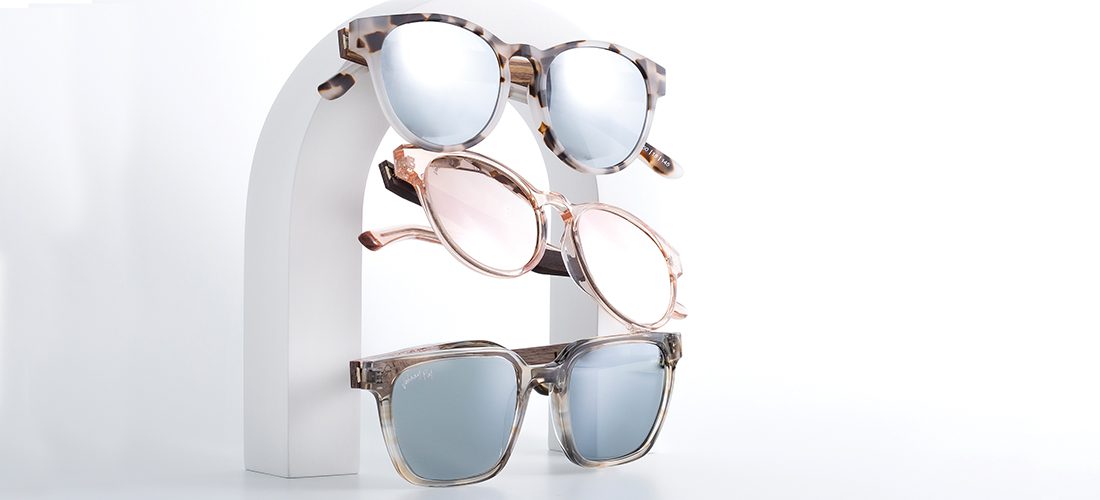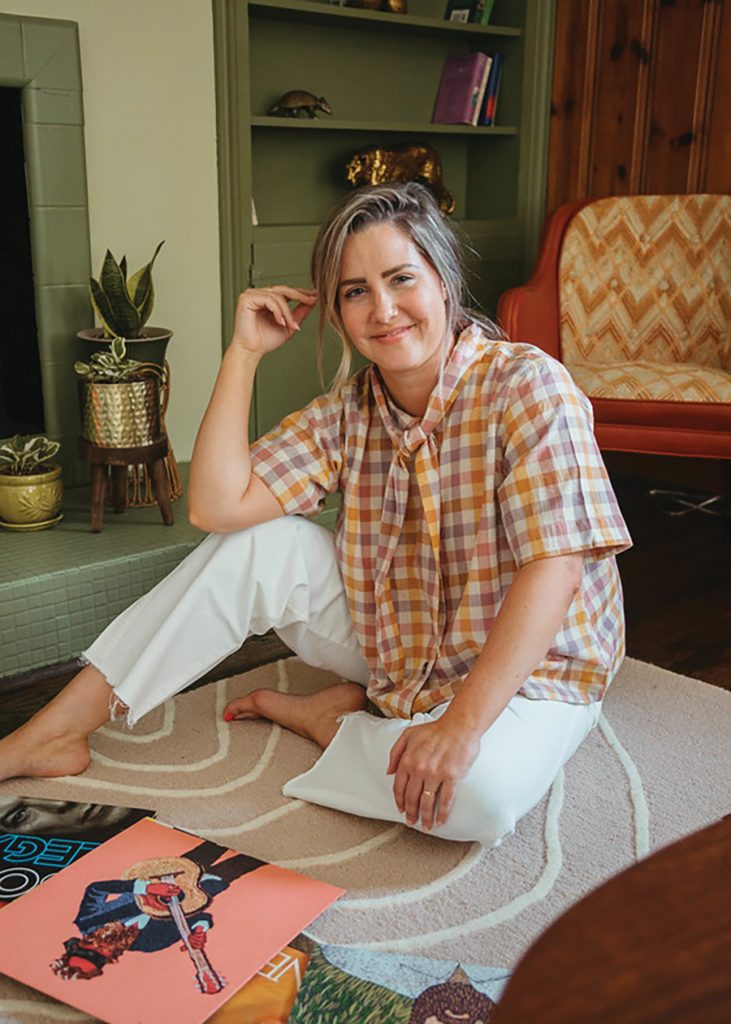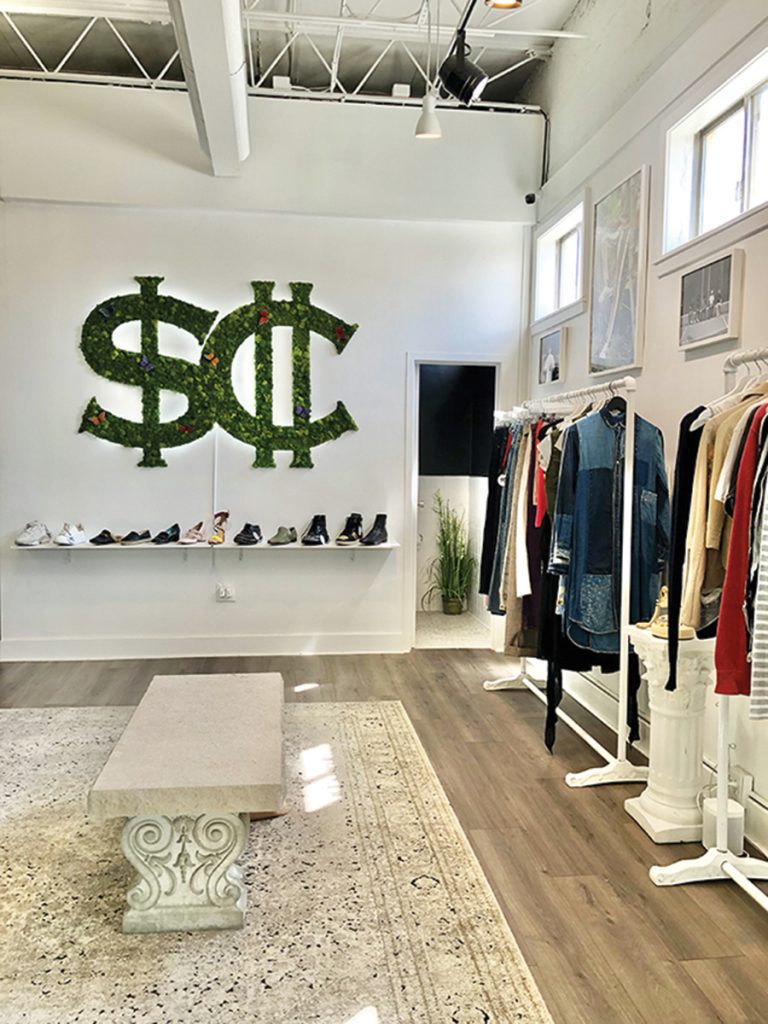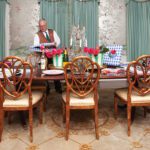How it’s made
September 1, 2021

Shopping for recycled and sustainably made goods and clothing is suddenly in style.
by Jennings Cool
You walk into your favorite boutique or department store and see a must-have top to add to your wardrobe. You try it on, fall in love and decide to buy it. Now, your stylish new top hangs in your closet, surrounded by an accumulation of seasonal blouses, sweaters and T-shirts.
This is the typical retail experience of shopping for clothes, but it isn’t the whole story.
“I never realized in 33 years that someone physically made my clothing — sewed every button, hemmed it,” says Alara Baltmiskis, co-owner of Siela Boutique in Waxhaw. “I never considered there was a person behind it — it was out of sight, out of mind.”
While fashion is constantly evolving, the way garments are created has remained consistent. It starts with designers sketching products and trying out different colors, fabrics and styles. Those designs are then brought to life through fiber and garment production and shipped to various retailers and buyers to sell.
In the 1980s, fast fashion came along and turned the industry upside down — the result: lower costs and a glut of mass-produced, poorly made clothing. In 2018, the fashion industry produced 2.1 billion tons of carbon-dioxide emissions — about 4% of total global carbon emissions, according to a report by McKinsey & Company and the Global Fashion Agenda. The damaging effects of fast fashion not only harm the environment but also present humanitarian issues, including discrimination, abuse and unfair pay among workers.

Instead of waiting on larger companies to take a stand, Baltmiskis and other Charlotte-area business owners have begun to lay the foundation for sustainable shopping. Baltmiskis founded Siela Boutique in 2018 after learning how the fast-fashion process negatively impacts the planet and the people involved in the production.
“We have lost all connection to our clothing and how it is made — or really any goods we consume,” she says. “As conscious consumers, it’s about taking a step back and buying less. It’s asking, ‘Do we really need a thousand different styles?’”
At Siela Boutique, customers are encouraged to shop with a purpose — not an impulse — with a meaningful intention for zero waste. The boutique partners with vendors, small-batch factories and co-ops that align with the store’s core values: social responsibility, environmental stewardship and giving back to the community. Siela Boutique also partners with Turning Point, a Union County nonprofit, to offer a collection of carefully selected secondhand items for sale, with proceeds providing emergency resources for survivors of domestic violence, assault and abuse.
With retro styles making a reappearance, vintage shopping has also become a popular way to find chic outfits without fueling the fast-fashion industry.
“Fashion is reciprocal, and everything comes back in generally a 20-year cycle, so we are now seeing ’90s and Y2K trends appearing,” says Christi Williams, owner of Kitsch-y-Cool Vintage inside Sleepy Poet Antique Mall. “Instead of buying the fast-fashion version of a ’90s trend, it’s much more unique to purchase the real thing. It’s better for the environment, and often it’s more economical — especially when it comes to the basics.”
Williams grew up in the ’80s and did all of her shopping at thrift stores and the occasional vintage shop. She sought dresses from the 1940s and 1950s to alter, cut or dye to update them, quickly realizing she could turn her vintage shopping hobby into a business. Her approach to vintage shopping is to be imaginative. If you don’t like the sleeves on something, roll them up. If you aren’t into shoulder pads, take them out. Remove the dated belt and replace it with a different one if you don’t like it. “There are no rules,” she says. Some of Williams’ favorite vintage finds are a 1960s leopard-print coat, a 1940s tweed wool coat, a 1960s two-piece swimsuit and a 1950s beaded Christmas sweater — items she says she will keep forever.

“If someone is really hesitant about wearing ‘old clothes,’ I usually suggest they start out with accessories, jewelry or a coat. Work your way into finding other fashions that work with your style or wardrobe,” she says. “And above all else, if you like it and it makes you feel good, then buy it and wear it!”
JT Posh, an upscale consignment store in Dilworth, also offers a more sustainable way to shop, with a collection of pre-loved and gently used items. The store caters to young adults and college students looking for boutique brands without paying top dollar. Its inventory consists of on-trend styles, like biker shorts and wide-leg jeans, and ranges from boutique apparel to designer labels.
Living in a sorority house in college, JT Posh co-founder Tracy Auten loved sharing clothes with her sorority sisters and noticed she wasn’t the only one.
“Nowadays, since there is a lot on social media, girls don’t want to be seen in the same outfit. So, it becomes cheaper — and better for the environment — if they want to consign and make money or shop recycled clothes for a new outfit,” Auten says. “Plus, I also feel like things never really go out of style — or once they do, they come back in style.”
Camille Ross-Allansson, owner of Divine Consign boutique in south Charlotte, says that shopping for recycled clothing is smart shopping. “People come here because they want to be a more savvy shopper. You could go to Gucci and get a $1,000 handbag or come here and get it for $400.”
Divine Consign looks and feels like an upscale boutique, offering high-quality clothing, handbags, shoes, jewelry and accessories for less. Most of the store’s inventory comes from people within the community or businesses with overflow stock, many of which are local, repeat consignors. If a consignor’s clothing does not sell within 60 days, they can opt to donate the items to Thomas Rogers Ministries, a nonprofit that operates a thrift store and supplies free clothing and accessories to those in need.
“All around, it’s a win-win,” Ross-Allansson says. SP
Local stores and brands that support sustainable manufacturing
Johnny Fly Co.
Eyewear made with wood and other sustainable materials and nontoxic leather goods. 519 E. 36th St., Charlotte, and 19911 N. Cove Rd., Suite B, Cornelius, johnnyfly.com
Recover Brands
T-shirts and outerwear for men, women and children made from recycled plastic bottles. recoverbrands.com
Siela Boutique
Ethically and sustainably made women’s apparel, accessories and home goods. 318 E. South Main St., Waxhaw, shopsiela.com
Where to shop for previously owned or recycled clothing in Charlotte
Divine Consign
Women’s clothing, jewelry, shoes, accessories and home accents. 8145 Ardrey Kell Road, Ste. 101, divineconsigncharlotte.com
Jilson’s Men’s Consignment
Men’s clothing, accessories and furnishings. 117 Middleton Dr., jilsonsconsignment.com
JT Posh
Upscale women’s clothing in Dilworth. 2400 Park Rd., jtposh.com
Kitsch-y-Cool Vintage
Vintage fashions and home decor inside Sleepy Poet Antique Mall. 4450 South Blvd., kitschycoolvintage.com
Street Commerce
Men’s and women’s designer clothes and accessories. 325 E. 9th St., streetcommerce.shop
Featured image: Charlotte-based Johnny Fly’s sunglasses and prescription eyeglasses are made with wood and other sustainable materials.





